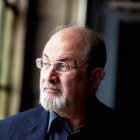18 Jan 2012 | Events
Date: 1 March
Time: 7-8.30pm
Venue: Sheikh Zayed Theatre, New Academic Building, LSE

Speakers: Pavel Litvinov and Michael Scammell, chaired by Jo Glanville
Tickets: free, register here
Acclaimed writer and founding editor of
Index on Censorship Michael Scammell and former Russian dissident Pavel Litvinov discuss the nature of censorship and the future of freedom of speech. It was Pavel Litvinov’s courageous public appeal to the West for help, during a Soviet show trial in 1968, that inspired the creation of
Index on Censorship magazine, a forum for banned writers, artists and intellectuals in the struggle against censorship. Forty years on, as Index on Censorship celebrates its anniversary, this will be a rare opportunity to hear an illuminating discussion from two leading voices in the history of free speech.
Michael Scammell is the author of The Indispensable Intellectual, the authorised biography of Arthur Koestler. Pavel Litvinov is a writer, physicist and human rights activist.
18 Jan 2012 | Asia and Pacific, News and features
 As religious leaders call to ban Salman Rushdie from the Jaipur festival in India, Salil Tripathi reports on the country’s “sepulchral silence”
As religious leaders call to ban Salman Rushdie from the Jaipur festival in India, Salil Tripathi reports on the country’s “sepulchral silence”
** Update 20 January 2012 ** – Salman Rushdie tweeted this morning:
Read more here
(more…)
1 Dec 2011 | Europe and Central Asia, Russia
Earlier this month, Russia’s Department of Presidential Affairs won three defamation lawsuits against newspaper Novaya Gazeta in just one week.
“The court is being used as a censorship instrument; it has been serving officials rather than law lately”, the newspaper’s editor-in-chief Dmitry Muratov told Index on Censorship.
The Department of Presidential Affairs of the Russian Federation is a state executive authority responsible for logistical support and social amenities for Russian federal authorities.
“Novaya Gazeta” is a twice-weekly newspaper owned by media tycoon Alexander Lebedev and the former president of the Soviet Union Mikhail Gorbachev. It is famous for its investigations and criticism of authorities.
In the week of 14–20 November Moscow’s Basmanny Court passed judgements on three libel claims brought by Department of Presidential Affairs against Novaya Gazeta. They all concerned publications about federal budget spending for controversial purposes.
One of the articles concerned firms close to the Department of Presidential Affairs which took part in drawing budget funds while reconstructing Russia’s main memorial to soldiers of World War II — the Tomb of the Unknown Soldier at the Kremlin wall. The article contained a supposition that 91 million roubles were withdrawn from Russian federal budget for reconstruction works which might have had already been done.
The Department of Presidential Affairs filed a suit against Novaya Gazeta and the article’s author Roman Anin, claiming the information about alleged misapplication of funds was defamatory. The other two defamation suits the Department won against “Novaya Gazeta” were brought in response to articles about its controversial transactions with short-lived companies, and high staff salaries which exceeded the ones publically declared.
The newspaper will also have to pay the Department and personally it’s head Vladimir Kozhin 100 thousand roubles (2049,77 GBP) in damages for the article about extremely high salaries. This article’s author Zinaida Burskaya has to pay 10 thousand roubles (204,98 GBP). The statements in them will also have to be refuted in “Novaya Gazeta”.
The Department’s spokesperson Viktor Khrekov said he was satisfied with the court’s decisions.
The newspaper’s attorney Yaroslav Kozheurov, in his order, said he will appeal the court’s decision. He expressed confidence that in spite of the judge’s decision the facts mentioned in the articles were sufficiently proven in the court.
“But even such controversial proceedings are better than shooting journalists,” says Muratov. Two“Novaya Gazeta” journalists were assassinated in last five years: Anna Politkovskaya, Anastasia Baburova. “Defamation suits will remain a key factor in suppressing free speech as long as Vladimir Putin rules the country,” Muratov concluded.
30 Nov 2011 | Bahrain, Bahrain Statements, Middle East and North Africa
International delegation to Bahrain calls for an end to free expression violations and for human rights defenders to be freed
(more…)


